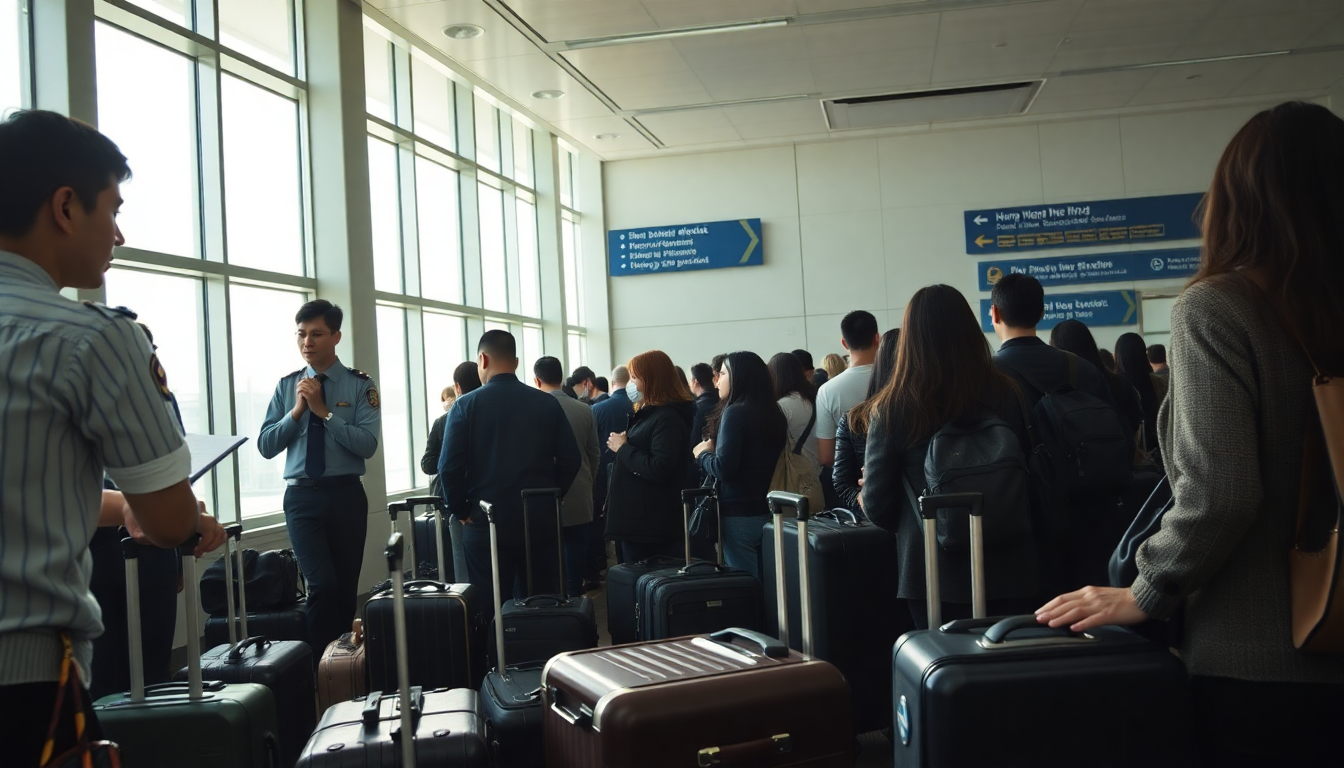Table of Contents
In recent months, Hong Kong has been making waves with its strict immigration policies, especially when it comes to turning away inbound travelers. Did you know that according to the Director of Immigration, Benson Kwok Joon-fung, the city turned away over 12,000 visitors in just the first five months of 2025? This statistic raises some serious questions about the effectiveness and implications of these measures. So, what’s really going on with these rejections, and what does it mean for Hong Kong’s reputation as a global travel hub? Let’s dive in.
Overview of Immigration Rejections in Hong Kong
When you look at the numbers, the 12,452 rejected visitors might seem like a drop in the bucket, representing just 0.062 percent of nearly 20 million inbound travelers during the same stretch. But hold on—this low percentage signals a significant shift in Hong Kong’s immigration policies. Kwok pointed out that these actions reflect a strong commitment to border control, aimed at preserving local job opportunities and ensuring the integrity of immigration processes.
So, what are the reasons behind these visitor rejections? A big concern is the possibility of individuals entering the city with dubious intentions, like engaging in illegal work. The immigration department is tasked with protecting the local labor market, and anyone suspected of having ulterior motives poses a potential risk. On top of that, issues with proper travel documentation have also played a role, with some individuals trying to enter without valid visas or even attempting to use forged documents.
It’s worth noting that some denied visitors have pushed back against these decisions, but immigration officers are trained to handle such situations professionally. This aspect of immigration enforcement highlights the delicate balance between upholding regulations and maintaining public order. The challenges faced by immigration staff underscore the complexities of securing borders while accommodating legitimate travelers.
Implications for Travelers and the Local Economy
The repercussions of these stringent immigration policies reach far beyond just the immediate rejections. For many potential travelers, this news might discourage them from visiting Hong Kong, especially for those who might not fully grasp the city’s immigration requirements. An impression of unwelcoming policies can really tarnish Hong Kong’s image as a travel destination, especially in a world where global mobility is becoming ever more crucial.
For the local economy, a dip in tourism can hit various sectors hard, from hospitality to retail. It’s a delicate balancing act: while protecting local jobs is essential, Hong Kong also relies on tourism as a major revenue source. The real challenge lies in finding a sweet spot that promotes economic growth while looking out for the interests of residents.
Additionally, the immigration department’s increased focus on scrutinizing incoming visitors might lead to longer wait times at border control. This could be frustrating for travelers with legitimate intentions. As the city navigates these complexities, effective communication about immigration policies and their underlying reasons will be key.
Looking Ahead: Future Trends in Immigration Control
As we gaze into the future, it seems likely that Hong Kong will continue to fine-tune its immigration policies in response to local and global developments. The immigration landscape may change, especially as the government assesses how well current strategies manage inbound travel.
A crucial part of this process will involve evaluating rejected cases. A data-driven approach to immigration could help identify patterns and refine entry criteria, ensuring that legitimate travelers aren’t unfairly hindered while still addressing security concerns. Plus, as global travel dynamics shift, Hong Kong may need to adjust its strategies to stay competitive and appealing to international visitors.
In summary, even though the number of rejected visitors may seem small, the implications of these policies are significant. The approach taken by Hong Kong’s immigration department not only impacts the city’s reputation but also has major ramifications for its economy and the overall travel experience. So, what does the future hold for travelers looking to explore this vibrant city? Only time will tell.


